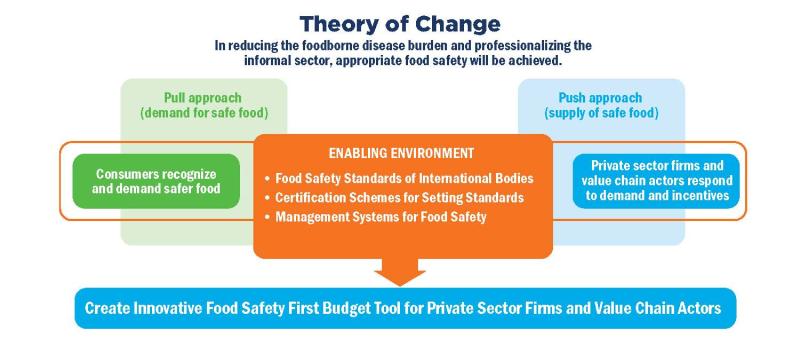A New Tool to Help Farmers Meet Growing Demands for Food Safety in Developing Countries
This blog, written by Catharine Phiri, Senior Technical Adviser for Market Systems, Corus International, was originally posted on Vikāra Institute's website.
In this blog, the author highlights the difficulties and importance of any supply chain to adapt to their end market's needs and changing requirements. Often, local supply chains in developing countries are not integrated into end-market requirements in a way that allows for them to effectively adapt, as was the case in the blog. While the blog focuses on a tool to help local market actors align their enabling environment with effective food safety requirements, it is also essential to recognize that complex systems like market systems are dynamic. This dynamism means that acceptable food safety requirements change over time. Often there are multiple requirements within any given market system, such as organic, fair trade, global gap, minimal government requirements, etc., which impacts how market systems evolve to improve supply chain management, competitive landscapes, and end consumer feedback in a way that allows markets to more effectively adapt over time. This year MSS2022 will continue to focus on systemic capacities that allow systems to change and evolve more effectively.
Rejected shipments are a farmer’s worst nightmare. Imagine the surprise, disappointment, and panic that came when Filipino farmers learned that Japan rejected their mango export due to Japanese food safety regulations changing the Minimum Residue Level (MRL) while the shipment was in transit. A sizable chunk of their expected income was gone, and the costs to ship the mangoes back chipped away further at their profit. Critical buyer-supplier relationships were damaged. But what could be done? The Government of the Philippines had not issued the updated MRL in time for the mango shipments leave date, so the farmers were at the mercy of the Government of Japan’s changing food safety regulations.
Governments of low and middle-income countries are attempting to establish enabling regulatory ecosystems, identify the right incentives to effect behavior change along supply chains, and encourage improved practices among market actors through food safety standards training and technical assistance.
The challenge, however, is most farmers organizations and enterprises do not have the means to plan or budget for implications of food safety standards for their operations. That is why, with funding from the International Fund for Agricultural Development (IFAD) through the Agribusiness Market System Alliance (AMEA) network, Corus International is designing an innovative Food Safety-First (FS-First) Budget Tool to help farmer organizations’ ability to cost out and plan steps to enhance their professionalism and meet food safety standards for their buyers and consumers.
Image

As seen in our Theory of Change above, the enabling environment is the pivotal link between the pull and push approaches, recognizing the various international and national standards, certifications, and management systems strive to have food safety in farmer organizations and other value chain actors. The challenge faced is that farmer organizations and enterprises do not have any means to plan or budget for food safety.
The FS-First Budget Tool will allow farmers, farmer organizations, cooperative management, and food operators (processors, aggregators, buyers, etc.) to:
- Determine whether it is profitable to make food safety investments in their operations.
- Recognize what food safety changes are beneficial to meet government and buyers’ specifications and satisfy consumers.
- Identify which buyer and industry certification schemes are valuable to pursue or not, and the associated costs therein.
- Show the incentives for expanding market outlets, e.g., into urban and formal markets inclusive of exports.
- Use the FS-First Budget Tool to speak with large commercial companies and buyers about food safety investments in supply chains.
- Show financial institutions their dedication to food safety standards, which will strengthen their candidacy for a loan.
- Measure the return on investment of investing in food safety systems through agricultural sales.
For international development practitioners, the FS-First Budget Tool can be combined with capacity strengthening activities with farmer organizations, cooperatives, and enterprises. Other business development services (BDS) or enterprise assessments can utilize the FS-Food Budget Tool for ongoing private sector engagement.
Corus has released a white paper with its desk research on food safety issues farmers in low and middle-income countries face in 2022, which will be followed by the FS-First Budget Tool. To stay informed of these releases and other insights and resources for rural economic development, subscribe to Corus’ mailing list at https://corusinternational.org/email-subscribe.

